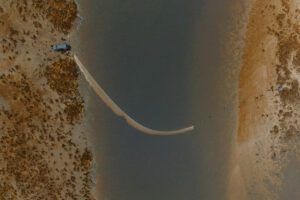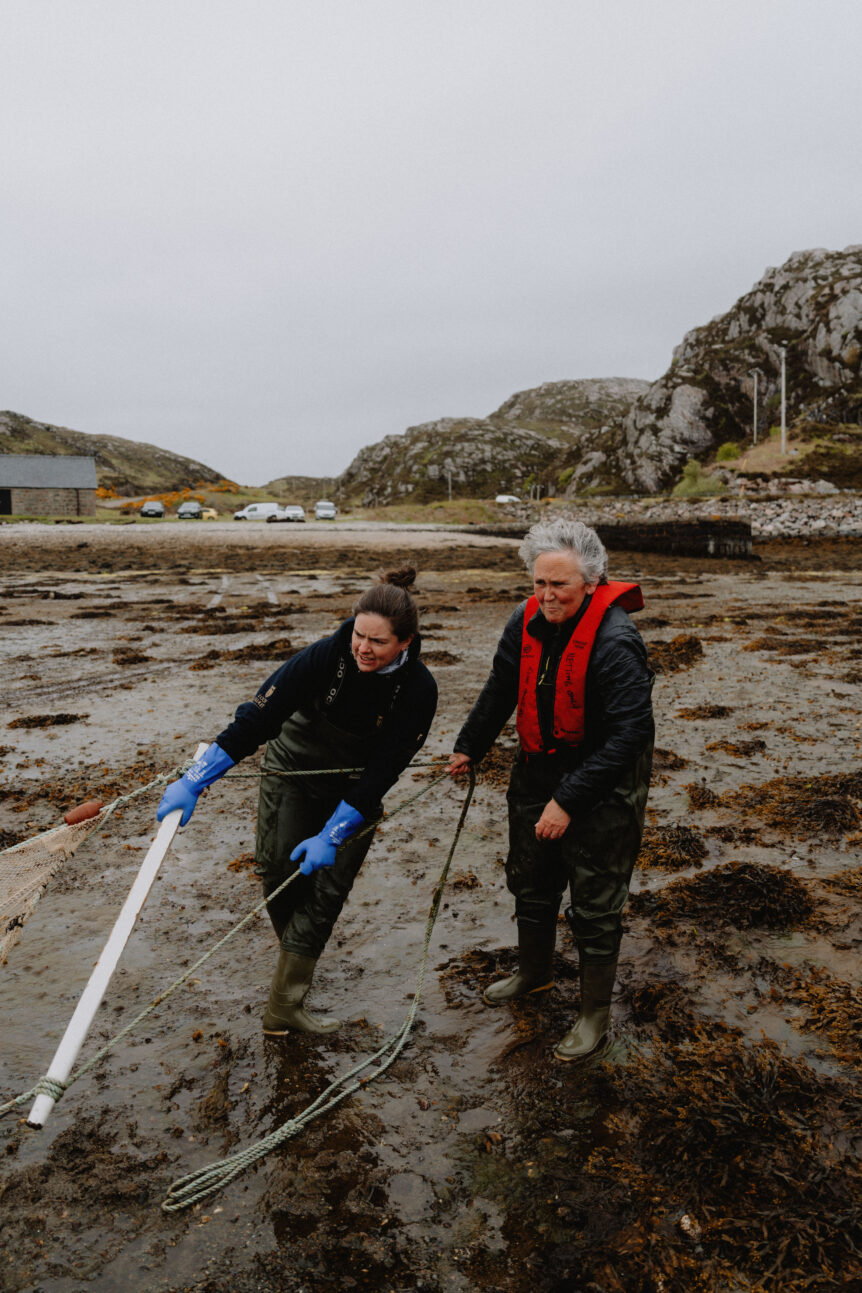Loch Duart & Fisheries Trusts’ partnership brings greater transparency to salmon farming
Established in 1996 to maintain and restore native fish populations the West Sutherland Fisheries Trust (WSFT) monitors and protects wild fish stocks. By using scientific programmes and guided fishery management plans they aim to have a positive impact on wild salmonid populations in the area.
Loch Duart has a long standing relationship with the WSFT, from working in with them in 2018 on a sea trout tracking project to inviting them to be an independent monitor and auditor of its weekly sea lice count activities since 2021.
Loch Duart’s Fish Health Manager, Beth Osborne and Dr Shona Marshall, Senior Fisheries Biologist for the Trust, spoke about what this level of access means for themselves, the Sutherland community and the surrounding areas.
Watch Loch Duart and the West Sutherland Fisheries Trust talk about their work here:
What does the West Sutherland Fisheries Trust (WSFT) do?
“The West Sutherland Fisheries Trust are an independent charity based in the North West,” explained Dr Shona Marshall. “We monitor the wild fish populations and advise on and help with the management of the rivers and lochs in the area.”
What takes place in these health checks by WSFT?
“We’ve been health checking all the pens with Shona from West Sutherland Fisheries Trust,” said Beth. “We’ve been doing lice counts, gill scores and taking gill swabs. West Sutherland Fisheries Trust audit the health checks, making sure that what we report is what’s actually here.”
“I’m not aware of any other Trust that has the access that I have here.” said Dr Marshall.
What does it mean to Loch Duart having independent verification for its salmon farms?
“It helps with reinforcement of lice identification, relationships between the whole area and it works both ways. We will go out and see what they’re health checking on their fish,” said Beth. “It’s important that Loch Duart works with West Sutherland Fisheries Trust because it gives us transparency of our data as a whole, both from the wild stocks as well as the fish farm. It helps the local environment, the local people, all of the local stakeholders as well as tourists that visit the area. If everything’s healthy in the area and we’ve shared as much information as possible, then everybody benefits.”
Why is transparency so important to Loch Duart and WSFT?
“There’s absolutely no point in hiding health problems,” said Beth. “It just makes things worse. If we’re actually straight forward about what we’re seeing, sharing information between ourselves and people who manage wild fisheries we could help each other; we could learn from each other. Because if we’re struggling with something. They’re probably struggling with it too. But realistically that relationship hasn’t been there in the past to find that out. So why wouldn’t we want to be transparent.”
What benefits have the WSFT found from this partnership?
“Loch Duart supports the West Sutherland Fisheries Trust with training,” said Beth. “They come out here and see our fish. It helps them identify things in their own wild populations. They primarily audit these sites for us and we go out and help them with net sweeps and training for looking at wild fish. We work together to form an environmental management plan to better support everybody in the area.”

What environmental monitoring do WSFT and Loch Duart do in the area?
“The river sweep is undertaken by taking a net round the estuary encircling a number of fish,” Dr Marshal explained. “It’s hand pulled. We are mainly interested in the sea trout but we will get other species. Nowadays the main goal is the sea lice counts…and while you’ve got the fish it gives you a chance to look at the condition to see if they are in poor condition or are these fish healthy?”
Loch Duart will provide people to help us with the sweeps and have also provided training in sea lice and gill health identification.”
How do WSFT independently monitor fish health at Loch Duart’s Sutherland site?
West Sutherland Fisheries Trust biologists will:
- visit 4 different Loch Duart farm sites each month to observe the routine, weekly sea lice counts being carried out
- monitor the procedures being followed and the recording of the results
- review the data from all sites to establish consistency with the findings at visited sites, given the prevailing environmental and biological conditions

